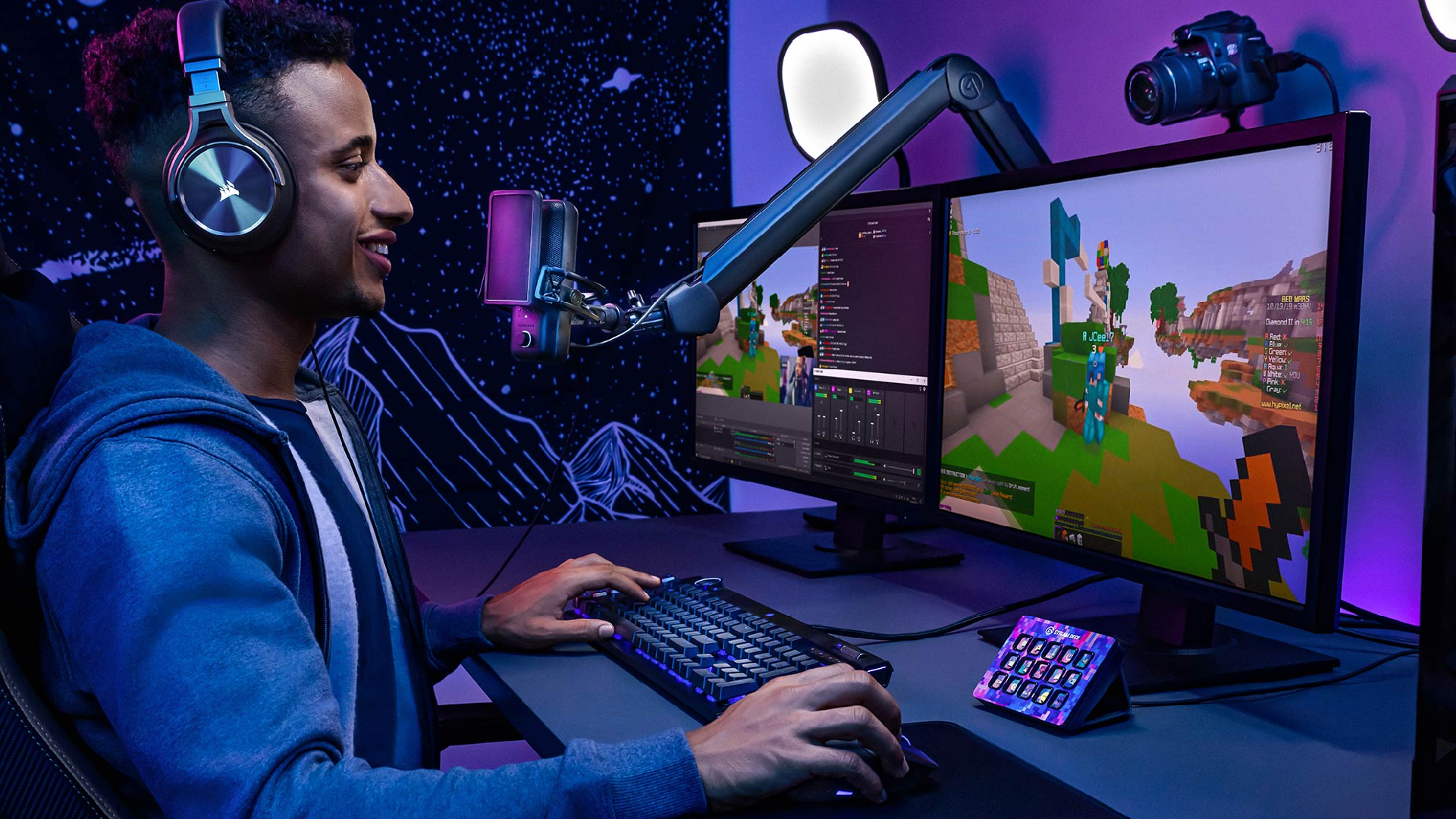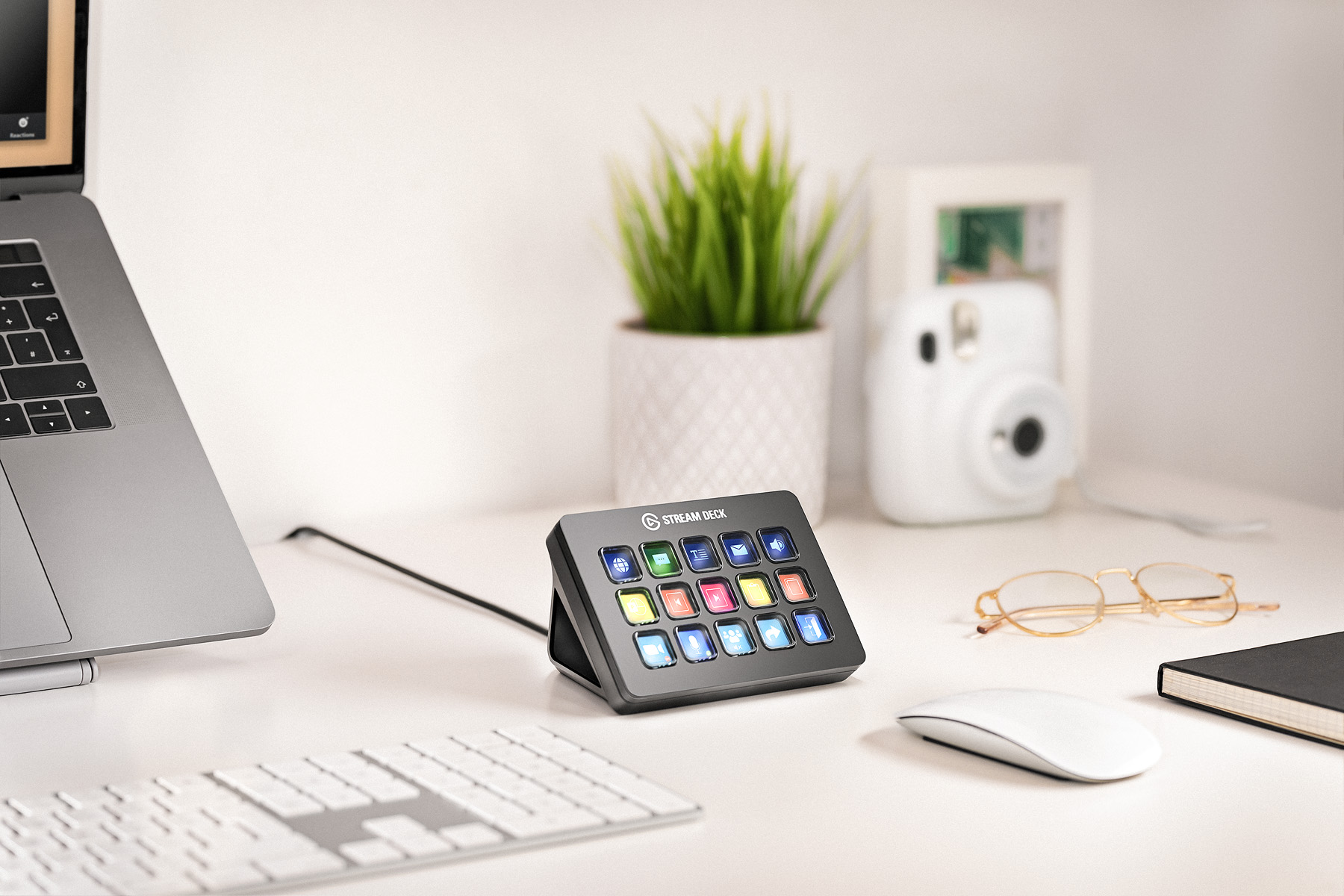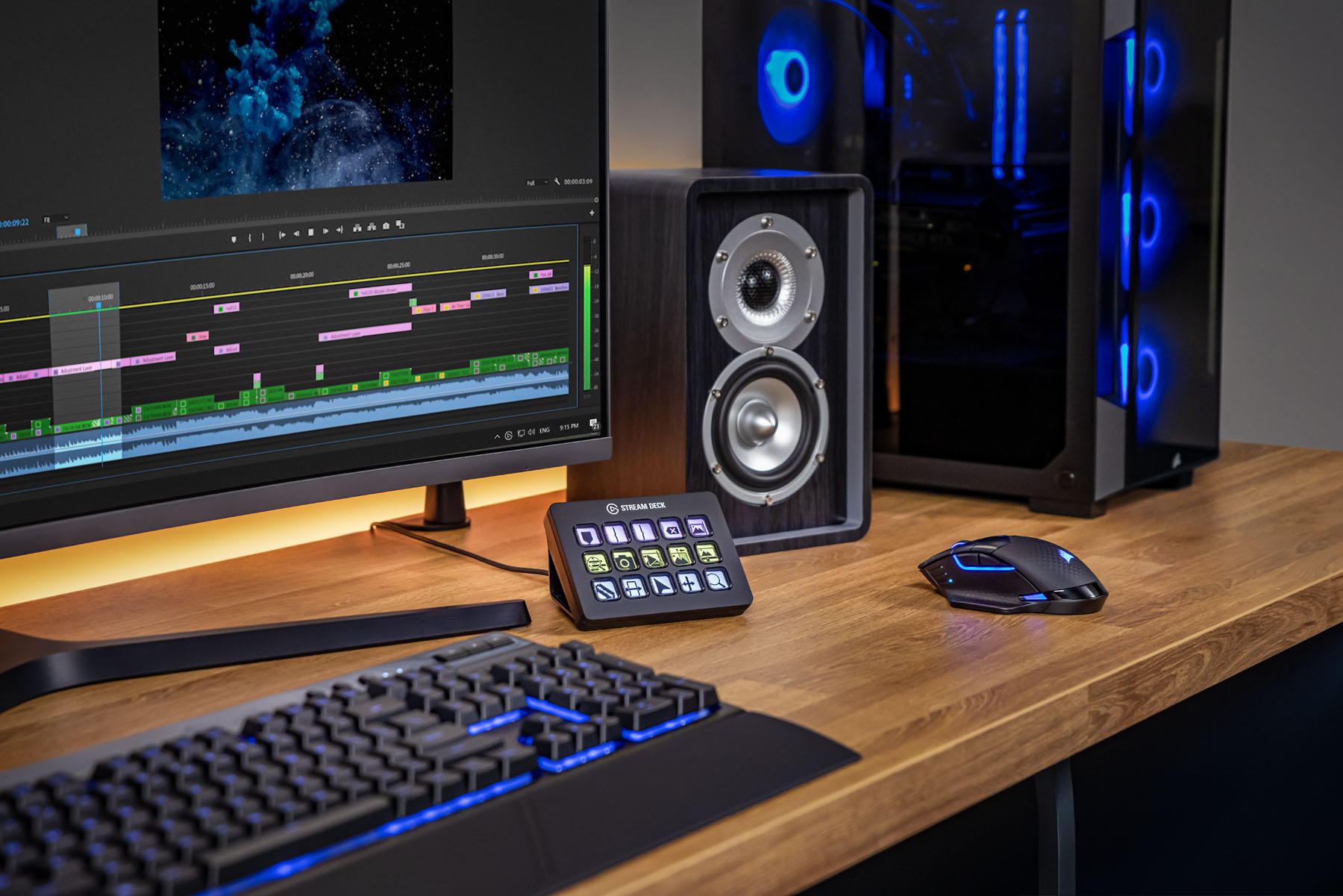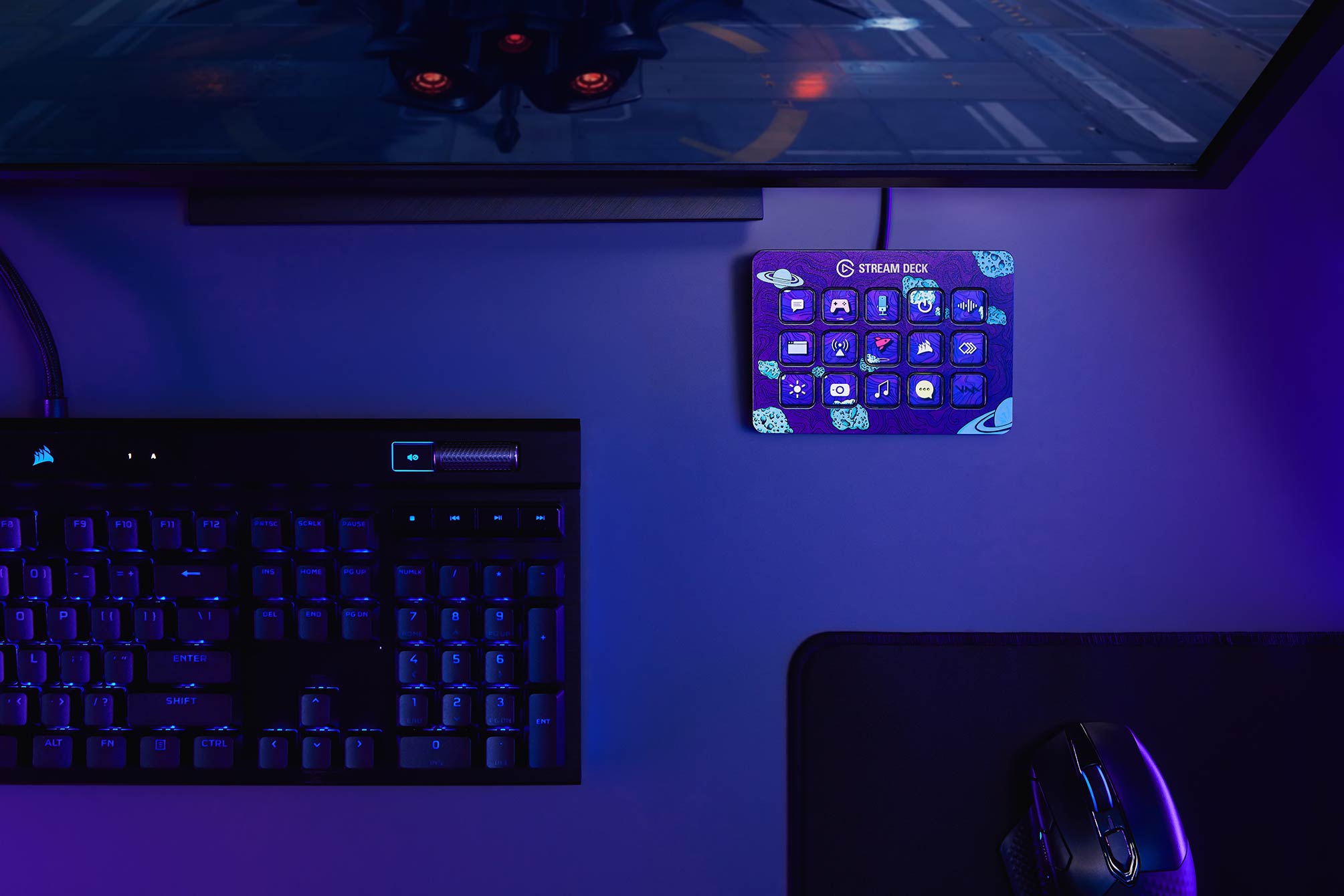No, you don't need a Stream Deck
Stream Decks are more about status than they are about improving your stream

Streamers, I know this is hard to hear but we collectively need to accept that you don't need an Elgato Stream Deck. Stream Deck, not Steam Deck. I know because I have one and as brilliant as it is as a little device on your desk, it's not something you need, especially early on in your streaming career.
In streaming, appearances are everything. These days to show you're a big streamer you need huge unwieldy microphones, and though someone else wrote that linked feature I'm guilty of owning one myself. As a streamer of two years and counting, I have seen a number of hyped products and succumbed to their pressure more than once. The lighting, the gamer chairs, the little neon sign behind you, and more.
Because of that, streaming is startlingly easy to sink large amounts of money into. I've syphoned most if not all the money I've earned from going live back into equipment and although some of it has definitely improved the quality of my stream and experience for viewers, other pieces I've bought didn't. And at the top of the list of things I definitely bought more for its status symbol among streamers rather than its streaming worth is Elgato's Stream Deck.

Hook, line, and sinker
This isn't me throwing shade at Elgato. Corsair's streaming orientated products are almost single handedly upgrading the quality of small to medium size streamers. The Wave microphones? Brilliant. The Ring Light? Enlightening. The Cam Link? Phenomenal. I cannot praise some of these items enough for being reasonable in price and bringing streamers' dreams come true. I know because those three items in particular are products I swear by. So Elgato gets a huge green light from me overall.
But the Stream Deck? The Stream Deck is streaming's biggest "hey did you know I'm a streamer?" product and I'm telling you, you don't need it.
I bought an Elgato Stream Deck because it was seen as a must have. All because streamers need scene transitions, mute buttons, and uh, that's kind of it. That's the pitch. A plastic-y panel on your table that does those two things rather than you tabbing out of the game and doing them yourself. Huh.

And I fell for it! I change scenes, so I need a physical object to help me do that rather than just pressing a button on my other screen. Ingenious! A perfect invention to help me smoothly go from one screen to another for the arduous five times I did every stream. And that's what I did for the first three months of owning a Steam Deck. It was a solid addition to my setup until it felt like an effort to remove my hand from my mouse or keyboard and lean forward to press it instead of just tabbing out and quickly changing whatever I needed to do. And now it sits dormant, waiting for its next time to shine.
Keep up to date with the most important stories and the best deals, as picked by the PC Gamer team.
So what else can these things do? Perhaps Stream Decks are useful for those without a second monitor to tab out to which shows their stream software? That would be a great argument, except you can get a low-end monitor these days for around £100, and the Stream Deck is £140. Hmm. Spending that cash on a second monitor is a better addition to a set up than a Stream Deckfor looking at chat, stream alerts, levels, and generally all the other benefits of having double the screens.
Stream Decks can also open software really quickly at the press of a button. But when you're waiting for Photoshop or other applications to open, just pressing them on your taskbar seems like no biggie. At the push of a button you can open a saved tab—but if it's so important for you to have on a Stream Deck, you've probably got it bookmarked already right?

The big red button
Emergency mutes? Quick screen changes? The former is often actually solved by microphones themselves, in fact Elgato's Wave microphones have physical mute buttons. And if anything comes up that needs muting on screen, well pause that video or pause the game or quickly tabbing out to your software is preferable. Same goes for those quick screen changes.
You can make the Stream Deck buttons bring up digital elements on screen, like reminders to follow, but timed alerts would be less hassle wouldn't they? Or you can get it to tweet you're live, but if it's the same tweet every time it's less likely to get engagement so you better hand craft it anyway. Now I'm not saying the Stream Deck is useless. Far from it in fact. But if you're just starting on your streaming career, the Stream Deck is probably the last bit of kit you need and far higher on your list than it needs to be.
There are certainly streamers who can use Stream Decks well, and they would be considered an essential part of their kit, I'm not going to deny that. Those who have many many different screens with greenscreen effects, those that can't yet afford the higher end voice changers, or who, during their streams, don't have their keyboards easily accessible like artists or dancers. It may even be useful for accessibility reasons. But you have to think about it critically. Are you a streamer that will use it to its full potential? Or are you just playing Apex Legends?
Why I love the @elgato Streamdeck: pic.twitter.com/6a8TrMTkMvJune 15, 2022
Stream Deck coincidentally got a big update this week which added even more practical features. Altering Deck rotation, adding effect delays, better OBS integration and more are part of the sell. But with these additional uses, I'm doubling down and telling you unless you are making the most of your current kit you aren't going to use the Stream Deck to its full potential, like uh, blowing up a wacky inflatable man.
If you're just playing games and chilling, the answer is probably no. Sorry, that comes from experience. Do what you want with your funds but I'm telling you if you're considering getting a Stream Deck instead of a camera, microphone, second monitor, a capture card, stream decorations, or almost anything else to improve your streaming experience, the Stream Deck should come last on the list. You can survive without it for now, I promise.
Imogen has been playing games for as long as she can remember but finally decided games were her passion when she got her hands on Portal 2. Ever since then she’s bounced between hero shooters, RPGs, and indies looking for her next fixation, searching for great puzzles or a sniper build to master. When she’s not working for PC Gamer, she’s entertaining her community live on Twitch, hosting an event like GDC, or in a field shooting her Olympic recurve bow.

